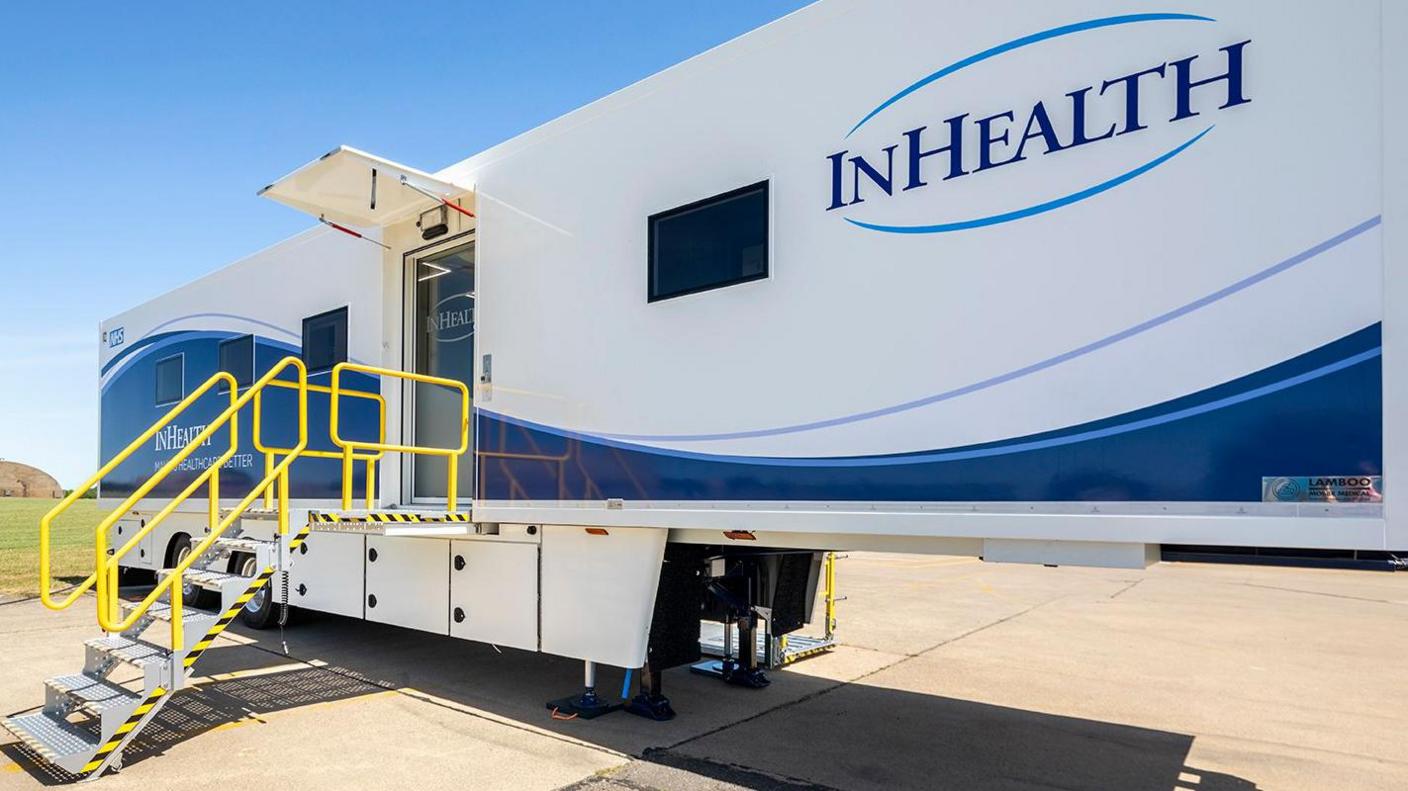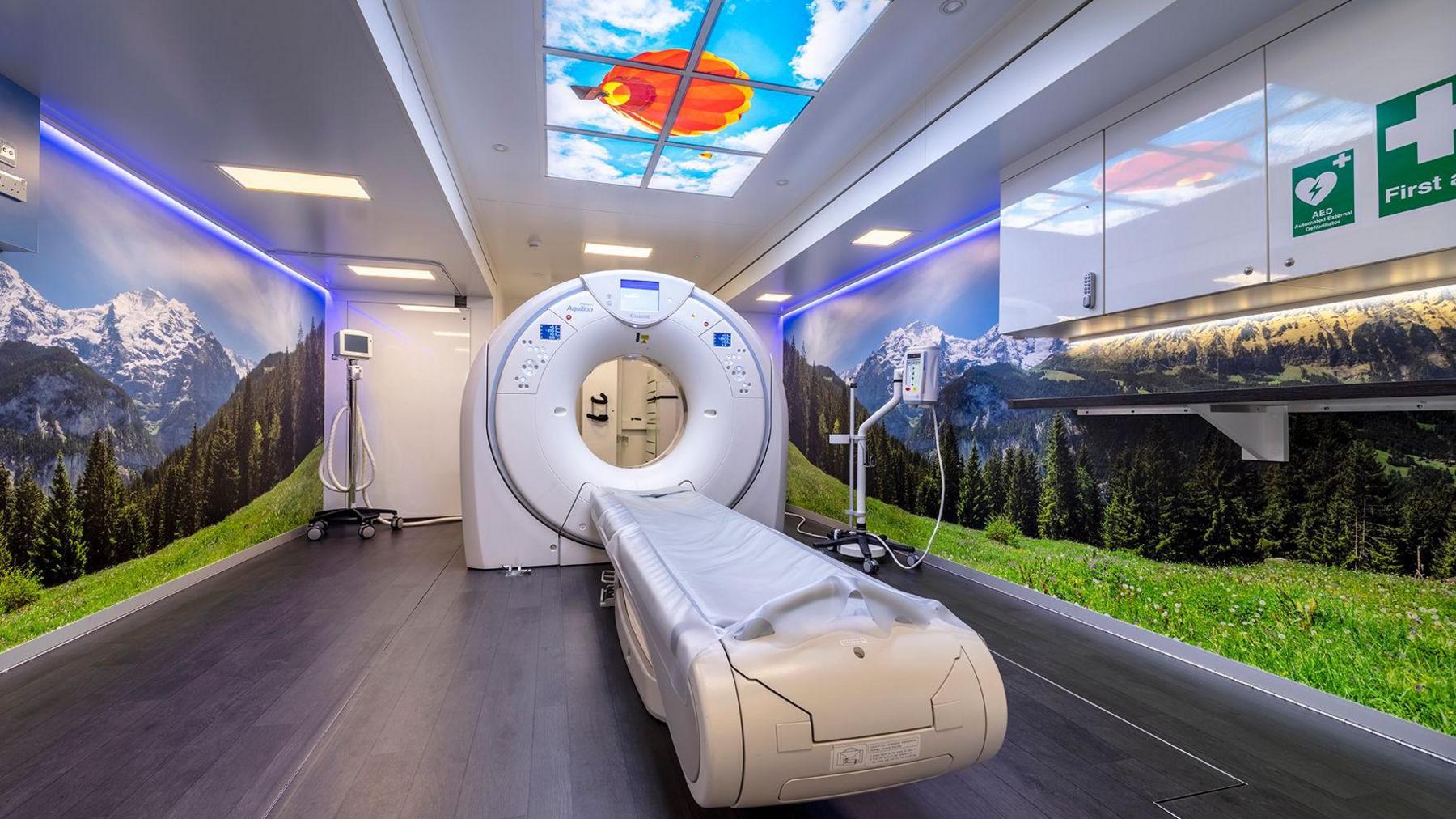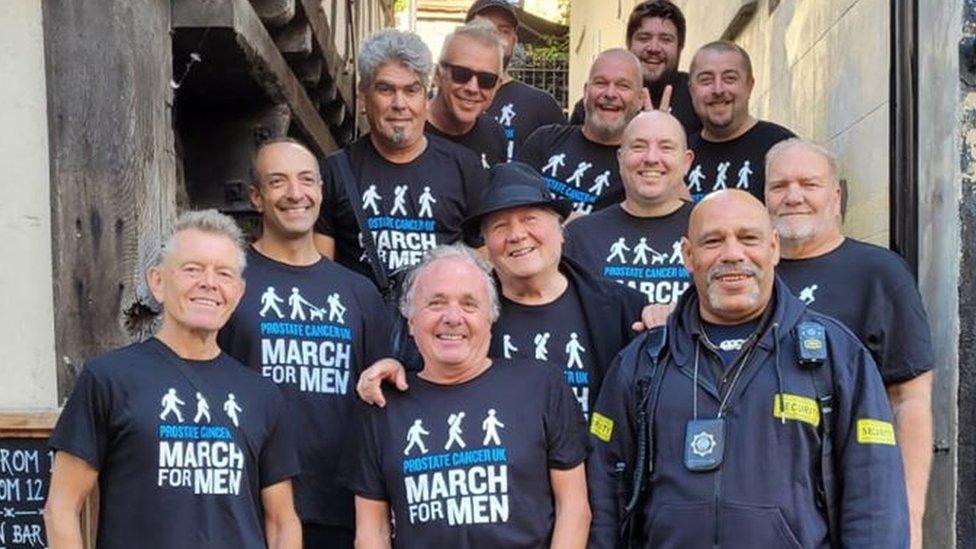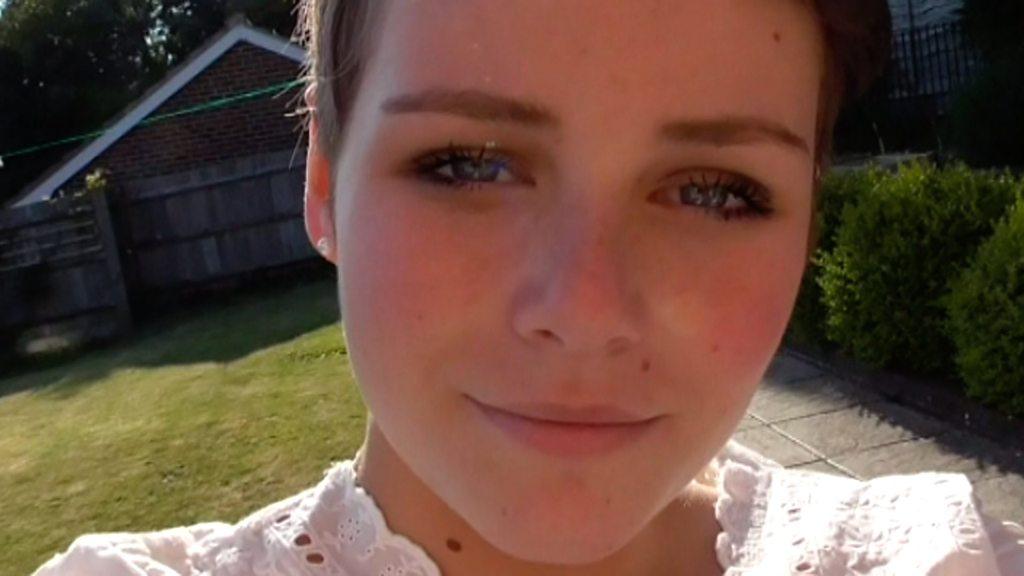Mobile units detect 100 lung cancers in Sussex

Mobile units in Sussex are used to scan for lung cancers
- Published
More than 100 lung cancers have been detected across Sussex after the NHS introduced mobile health checks.
Between July 2022 and June 2024, nearly 50,000 people in Sussex were invited for screening as part of the Targeted Lung Health Check (TLHC) programme.
Around 30,000 people took up the offer leading to the detection of 114 lung cancer cases.
Dr James Ramsay, chief medical officer for NHS Sussex, said the testing means cancers can be identified "before patients have any symptoms".
NHS Sussex said the TLHC programme had been particularly effective in Brighton, Hove, Crawley and Hastings and St. Leonard's.
It said these locations experience some of the highest rates of lung cancer deaths and smoking in Sussex.
Lung cancer remains the leading cause of cancer death in the UK, often because it is diagnosed too late.
The NHS said the TLHC programme offered "proactive outreach to those most at risk".
Patients are offered health checks and CT scans in community locations such as supermarket car parks, making it easier for people to access potentially life-saving services.

Mobile scanners have helped reduce lung cancer mortality by up to 61% in women and 26% in men.
Most of these cancers are identified at stages one and two, when treatment is most effective.
Identifying lung cancers early means patients can benefit from a wider range of treatment options, including curative surgery or radiotherapy.
Dr James Ramsay, chief medical officer for NHS Sussex is a respiratory specialist and said he saw "the consequences of patients being diagnosed with lung cancer late".
"The treatments we can offer patients are limited and the outcomes are poor," he added.
He said the scans are "simple and take minutes [...] giving an opportunity to diagnose lung cancer at a much earlier stage".
The NHS said the programme had reduced lung cancer mortality by up to 61% in women and 26% in men.
Follow BBC South East on Facebook, external, on X, external, and on Instagram, external. Send your story ideas to southeasttoday@bbc.co.uk.
Related topics
- Published24 January 2024

- Published23 February 2024
